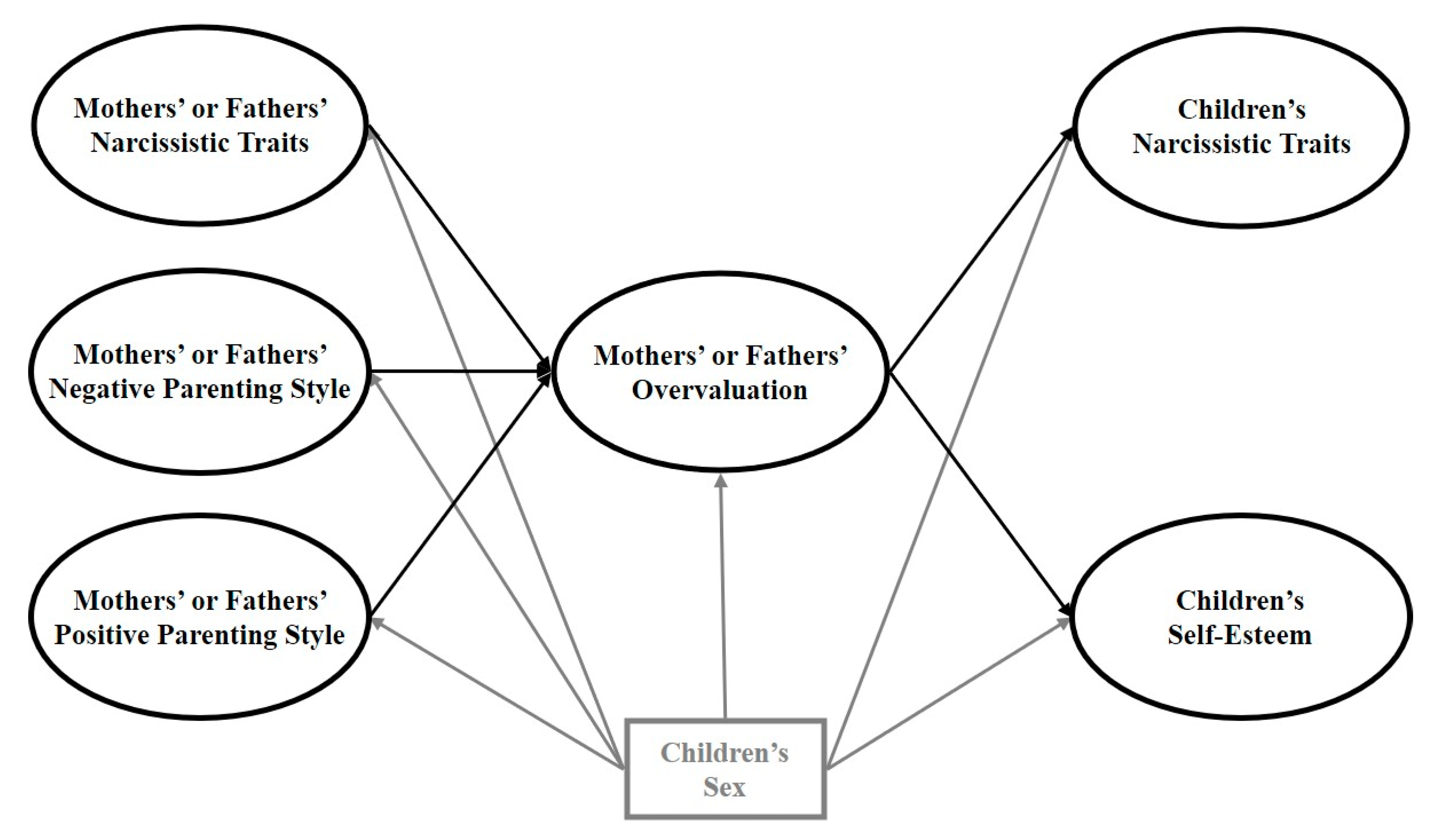Do you know a narcissistic parent? A narcissist parent can be difficult to identify, but there are some traits that they might have. This blog post will help you learn more about these traits and how to spot them in your parents so that the relationship between you and your parents can improve.
Contents
- 1 What Is Narcissism?
- 2 Who Is A Narcissistic Parent
- 3 Traits Of A Narcissistic Parent
- 3.1 Self-centered
- 3.2 Self-seeking
- 3.3 Self-absorbed
- 3.4 Expecting special treatment
- 3.5 Exploiting others
- 3.6 Lacking empathy
- 3.7 Envious of others
- 3.8 Expecting others to go along with their ideas and plans
- 3.9 Setting unrealistic goals for themselves and others
- 3.10 Believing that they are always right
- 3.11 Taking advantage of other people’s generosity
- 3.12 Expecting constant praise and admiration from others
- 3.13 Resentment and jealousy of others’ success
- 3.14 Using others without taking responsibility or considering consequences
- 4 Narcissistic Parenting Styles
- 5 Challenges Faced By The Children Of Narcissistic Parent
- 6 Tips For Narcissistic Parent
- 7 Tips For Children Of Narcissistic Parent
- 8 Trying to Change a Narcissistic Parent
- 9 Psychological Intervention For Narcissistic Parent
- 10 Conclusion
What Is Narcissism?
It is difficult for many people when they meet someone who seems outwardly confident. The word narcissist has been thrown around so much these days that it feels like everyone could be one. As mentioned in our previous blog post, the main traits of a narcissist include:
- Grandiosity,
- Need for admiration/entitlement,
- Lack of empathy
These three characteristics are what make up the full-blown disorder that is narcissism. It’s important to note that not all who display narcissistic tendencies have it diagnosable. But it can be a problem for those who are diagnosed.
NOTE: A Narcissistic Personality Disorder is categorized as a mental illness in the Diagnostic and Statistical Manual of Mental Disorders.
Who Is A Narcissistic Parent

A narcissistic parent is someone who has a personality disorder that compels them to see their child as an extension of themselves. A narcissistic parent must have complete control over the child, no matter how much damage is done to them. They need their child’s total focus on themselves and may treat others as inferior or unworthy of being in their presence.
Traits Of A Narcissistic Parent

Narcissistic parents tend to be very self-absorbed, controlling, selfish, critical of their children’s behavior or appearances. They demand perfectionism in everything they do, give cruel treatment towards other people without guilt or remorse if it serves them well.
Narcissistic parents have a list of traits that they use to get what they want. If you’ve ever been in the presence of a narcissistic parent, these things will be familiar to you. Below is a list of traits exhibited by a narcissistic parent:
Self-centered
A narcissist is preoccupied with his image. She believes she’s better than everyone else. Other people are just tools for her to get what she wants. She assumes that others are just as egotistical and pretentious as she is. So it’s easy for her to use them without feeling guilty or remorseful.
Example: In a group setting, the narcissistic parent will often interrupt others when they’re talking to make sure everyone is listening to her.
Self-seeking
The narcissistic parent will only give attention when there is something in it for him/herself. He/she will do things that get him/her praise, even if it means neglecting his child. He might be one of those parents who never hold their baby or show affection towards them.
Self-absorbed
A narcissistic parent is only concerned with how he appears to others and often disregards the feelings of his children in favor of his own. He might make negative comments about the child or even punish them for having emotions that he doesn’t approve of, such as crying in public.
Example: A narcissistic parent will often tell their children to toughen up and not let others see how they’re feeling. This is done because they don’t want anyone else knowing how they truly feel about their child.
Expecting special treatment
Narcissistic parents often expect preferential treatment from others because they are superior to them in some way, whether it’s education or wealth. They also expect this same kind of treatment from members of their own family who should be showing respect towards them as well. If the narcissistic parent doesn’t get this preferential treatment, they will become very upset.
Example: A narcissistic parent might not want their child to interact with other children because he/she is concerned about what his friends would think if the child doesn’t have all of the latest toys or clothes. So instead of allowing him to play with another kid who has nothing, he prefers to just keep his child isolated.
Exploiting others
Narcissistic parents will exploit other people’s feelings and emotions for their gain. They don’t have any problem using someone else as a stepping stool to make themselves look good in front of an audience, especially if it means they’ll get something out of it.
Example: If a narcissistic parent is running for political office, he’ll use his family as a platform to gain votes. He will even go as far as using their struggles and tragedies to get sympathy from the public at large.
Lacking empathy
A narcissist cannot empathize with others because they are only concerned with their feelings. They might not agree with somebody else’s opinion or decision but they will never show it because it would mean showing any kind of vulnerability, which is unacceptable to them.
Example: A narcissistic parent doesn’t like the fact that his child wants to go out and play when he should be studying for school; however, instead of discussing the issue with him, he forces his child to stay home and do homework.
Envious of others
A narcissistic parent will often envy those who have more than they do. This is because a narcissist can never be content unless they are superior in some way to everybody else. So instead of trying to accomplish something on their own, they would rather take the easy way out and look for other people to help them.
Example: A narcissistic parent will often feel envious of successful individuals who are in different fields than herself because she has never accomplished anything notable on her own. So instead of picking up a book or enrolling in college classes to educate herself, she’d rather just resent those who achieved success without her help.
Expecting others to go along with their ideas and plans
A narcissistic parent will often expect other people to be available whenever they need them, no matter the cost or inconvenience it would cause for somebody else. They also prefer that everybody should agree with everything they say and do, and become very upset if somebody tries to tell them otherwise.
Example: A narcissistic parent might become furious with a child who doesn’t agree with the fact that they should be home all day studying instead of going out and playing because he wants his son to have more friends.
Setting unrealistic goals for themselves and others
While a narcissist can often be very successful in the things that they do, it’s usually not because of their efforts. Instead, a narcissist prefers to find somebody else who is willing to help them accomplish an objective and then take all of the credit for themselves in the end.
Example: A narcissistic parent might expect his child to get straight As on every single report card because he wants the child to be successful, but at the same time, he had nothing to do with who his son is as a person.
Believing that they are always right
A narcissistic parent will often refuse to acknowledge their mistakes or apologize for wrongdoing because it would mean admitting that somebody else has more power than them. This is unacceptable to somebody who thinks they are capable of doing everything better than anybody else.
Example: A narcissistic parent will often blame her child for their own mistakes because she has always been in control and never had to answer to anyone.
Taking advantage of other people’s generosity
Since a narcissist doesn’t want to do anything that would help them look weak in front of others, they prefer to take advantage of other people’s generosity instead. This way, a narcissistic parent can pretend that everything was accomplished by somebody else and get the credit at the end without doing any actual work for it.
Example: A narcissist might ask their child if they need anything from the store while she’s there to get her something so she can feel like the good parent while the child feels obligated to thank them for their consideration.
Expecting constant praise and admiration from others
Since a narcissist is often preoccupied with making other people think that they are better than everybody else, it’s only natural that they will expect frequent appreciation too. They will often push their agenda on somebody else to get what they want and then feel disappointed when the effort doesn’t result in a positive response.
Example: A narcissistic parent might put her child down for not getting As on every single paper because she expects him to be perfect, but he likely has his strengths and weaknesses.
Resentment and jealousy of others’ success
Since the narcissistic parent is often obsessed with their well-being, they will be unable to acknowledge the accomplishments or happiness that somebody else has because it would mean admitting defeat in some way. The only thing worse than not being good enough for oneself is having somebody else show that they are better than them.
Example: A narcissistic parent might be angry with their child for getting into an Ivy League school because it would mean that the child has achieved something greater than what she was able to do herself even though her college education is no longer relevant today’s society.
Using others without taking responsibility or considering consequences
Since narcissistic parent only thinks about themselves, they will often use somebody else to get what they want without thinking of anybody’s feelings but their own. Nobody is ever capable of hurting them since it would mean that they are weak, which isn’t possible for somebody who has already convinced themselves that they are the best thing around.
Example: A narcissistic parent might ask their child to do things for them without offering any kind of repayment, but the child doesn’t want to be used for an objective that is not in his or her own best interest.
They might also resent their children if they are more successful or go to a better school because it means that they can accomplish more.
Narcissistic Parenting Styles
There are five parenting styles that narcissistic parents tend to use. They’re often unaware of how these behaviors affect their children because they haven’t taken the time to think about it.
Authoritarian Parents
Sometimes called “Problem Parents.” Authoritarian parents tell kids what not to do and punish them when s/he does so without explaining why.
Example: “Don’t touch that. It will break.”
Authoritative Parents
Also called “Reasonable Parents”. Authoritative parents set rules and explain why they are important. They also listen to their children’s needs so the boundaries can be flexible. This parenting style has been shown to have many benefits for kids as well as being associated with less bullying.
Example: “We’re not going to get ice cream after dinner tonight because it’s too expensive.”
Permissive Parents
This is the opposite of authoritarian parenting. Permissive parents are more likely to provide love and support for their children. But don’t set boundaries or enforce rules. Narcissistic permissive often label themselves as “cool” or “liberal.” But in fact, they are more likely to have children who struggle with self-regulation and need external regulation from others.
Example: “You can go outside since it’s a nice day.”
NOTE: Not all permissive parenting styles fall into this category. There is a difference between neglecting your children and understanding that they need the freedom to explore the world on their own.
Uninvolved Parents
It is also called neglectful parenting. This parent doesn’t set rules for their kids because s/he doesn’t want to be bothered. Uninvolved parents often have their problems. And so can seem neglectful, but they also might just not care about parenting at all. They’re more likely to think of themselves as “fun” or “laid back.”
Example: “You do what you like outside since I don’t care.”
Over-involved Parents
Such types of parents micromanage everything about their child’s life. It almost includes anything like what they eat for snack time, what they wear, and how their homework is done.
Example: “We’re not having pizza for dinner. We’ll have some healthier food instead.”
Challenges Faced By The Children Of Narcissistic Parent
The parenting style of a narcissistic parent causes irreversible damage to their children sometimes. Such children brought up under the toxic parenting style deal with listed challenges:
Recluse Behavior
The children of narcissistic parents have a hard time building relationships with people as they grow up. Because the parent has taught them to be self-centered and independent from others who might hurt or upset them. When this happens, these kids feel alone even when surrounded by people.
Depression & Anxiety
As narcissistic parents tend to be more focused on themselves than their children. They may not realize how much s/he is negatively impacting his or her child. This can lead to psychological intervention in adulthood because the child starts feeling depression and anxiety due to stress from these relationships.
Low self-esteem
The biggest challenge that narcissistic parenting poses is that it’s not healthy for children. While their parents are getting what they want, kids aren’t able to feel secure or validated in the relationship with them. Children of narcissistic parents tend to suffer from low self-esteem and can develop anxiety disorders like depression.
Tips For Narcissistic Parent
Set Boundaries
Set boundaries and be consistent with them. Make sure that the child knows what is acceptable and not. So there would no confusion when it comes to expectations. Setting limits also helps because children of narcissistic parents could go overboard sometimes in terms of their demands or requests. They might feel entitled which can result in an unhealthy relationship between parent and child.
Give Space
Narcissistic parents should also realize that kids grow up. They no longer need to be treated like a baby or toddler. But as an independent person who has the capability of making decisions for himself/themselves. Kids do not want leniency all the time if they are truly aware of what is right and wrong based on their age. This would also help them grow into responsible adults.
Seek Therapy
Children should be taught to respect their parents but there is a limit. Especially if the parent abuses his/her authority over the child. Narcissistic people need therapy to cope with past traumas and learn how to deal with reality in healthy ways instead of projecting their emotions onto others who bear no responsibility for their feelings.
NOTE: If narcissistic parents can do this, it would be easier to take care of the child even if they are not around. It is because healthy boundaries have already been set up between them and the kid. This would also prevent unhealthy interactions that could lead to more problems in the future instead of enjoying each other’s company as family members.
Tips For Children Of Narcissistic Parent

The first thing to remember is that narcissistic parents are not necessarily bad. They might be hard on you because they think it’s good for your character development. It can be difficult, but try to understand their point of view and reasoning behind the way they treat you. If nothing else, this will help reduce your resentment towards them. Below are a set of tips that you can follow:
Understand The Pattern
The key is to first understand the dynamics of narcissistic parenting. Narcissistic parents are insecure, not confident, or self-assured like other people might assume they would be because of their high self-esteem. They need validation from others and feel threatened when anyone doesn’t give them what they want. The best way to deal with narcissistic parents is to ignore their reactions and give them what they need or want.
Set Boundaries
The next step in setting boundaries with your parents is by learning how to say no and not feel guilty about it. This can be hard because narcissists have low self-esteem so they could feel hurt whenever their children refuse them. But this does not mean that the child should change his/her mind just for the sake of peace.
Be Supportive
Be supportive of your parents but do not be afraid to ask for help in taking care of them when needed. If they are abusive, tell someone about it so you would no longer have to deal with their attitude or behavior towards you. It is best if this happens before things get worse. Because if they do, it would be harder for you to leave them.
Maintain Distance
Do not let your parents take advantage of you especially in financial ways. It is because this is one sign that their self-esteem problems have turned into a dependence on others who are more capable than themselves. However, do not cut ties with narcissistic parents either just because they need help or could be a little annoying.
Trying to Change a Narcissistic Parent

It is not healthy for the child of narcissistic parents to try and change their parent or turn them into someone else because this will never happen. The best you can do if it becomes necessary is:
- Leave that relationship behind,
- Learn what you need from your parent’s patterns,
- And move forward on your own
Psychological Intervention For Narcissistic Parent
Psychological intervention is necessary if you’re suffering from depression as a child or teenager. Especially because it’s important to start treatment early on before the problem becomes worse. Two types of therapy can help –
- Cognitive-behavioral therapy (CBT)
- Interpersonal psychotherapy (IPT)
The goal of therapy is to help the narcissistic parents face their emotional issues and come up with ways they can work on changing behavior that hurts others. The therapist will also make sure you feel like your voice is heard throughout the entire process.
You might need to stay in therapy longer than your parents. Because it’s common for children of narcissistic adults to have low self-esteem and lack a healthy sense of self-respect. When you’re ready, the therapist will help you explore ways that can improve this condition so that you can live a more fulfilling life.
Conclusion
The most important thing to remember is that you are not your parent’s child. You may have some of the same traits. But there will always be differences between you and them. Narcissistic parent can change their ways if they want to. But it won’t happen overnight so don’t hold out hope. While these tips can help in repairing relationships with parents who were never too good at parenting, keep in mind that every person deserves love and respect no matter how bad their past was or what mistakes they’ve made as adults.
If you are looking for affordable Online Counseling MantraCare can help: Book a trial therapy session


